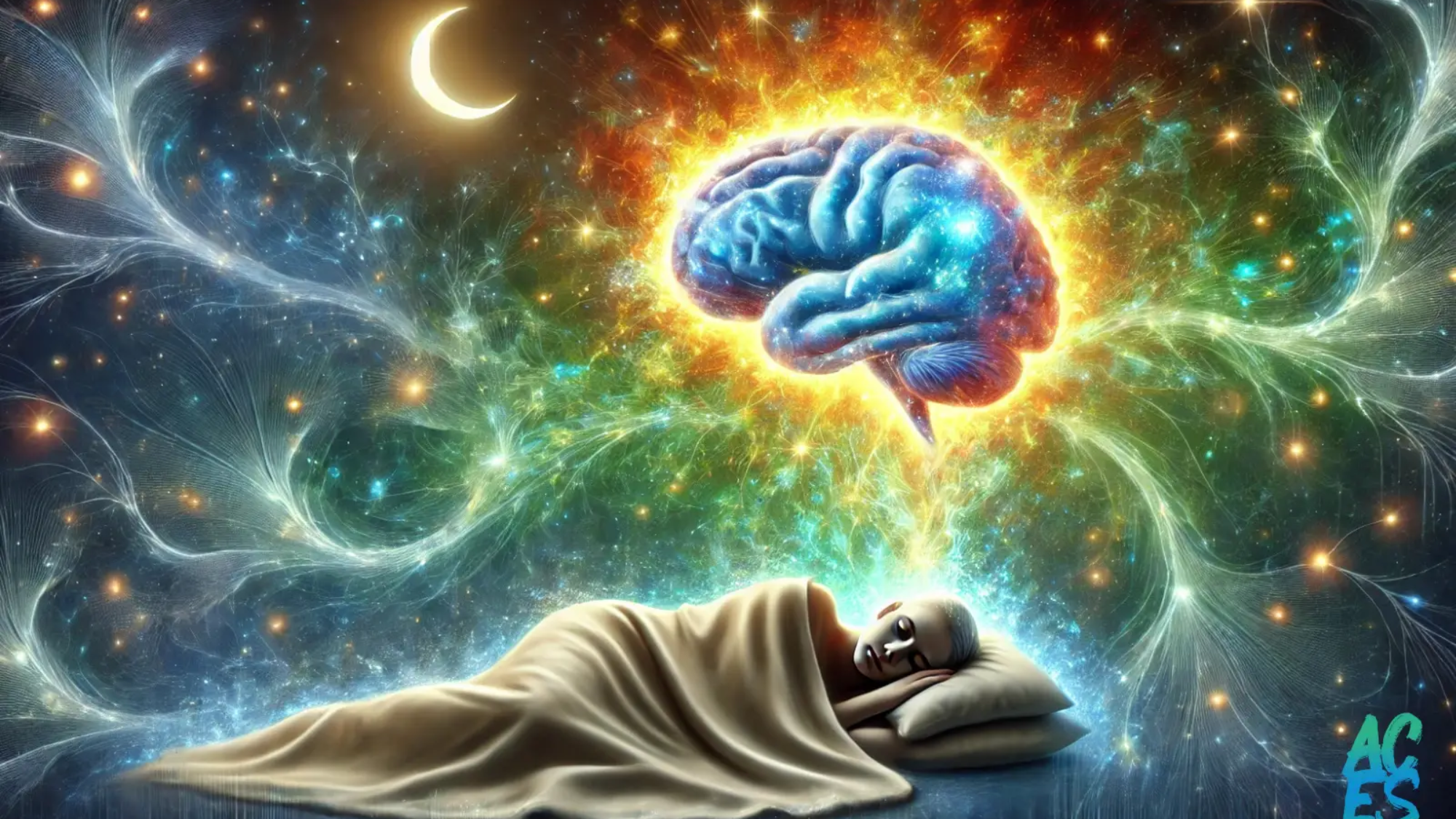Your brain is like a smartphone. Every day, you add apps, take photos, send messages, and by the evening, your battery is inevitably drained. Now, what if you skipped the nightly recharge? Soon, your once-snappy responses would lag, and your screen might freeze right when you’re in the middle of an important task. Just as your phone needs to recharge, so too does your brain require sleep to function optimally. Let’s dive into the cozy, critical world of sleep and its profound impact on mental health and daily performance, particularly for those facing challenges like disrupted sleep patterns in areas like Orlando.
The Science of Sleep
Sleep isn’t just a passive activity or a mere break from your busy schedule; it’s an active state where magic happens. During sleep, your brain is like a diligent housekeeper. It sweeps away the toxins built up from a day’s work, files away important memories, and repairs any cellular damage. This clean-up process is crucial for mental health. Skimping on sleep can leave these tasks unfinished, increasing the risk of mental health issues such as depression and anxiety.
Why Sleep Matters
Memory Consolidation: During sleep, your brain processes and consolidates the information learned during the day, converting short-term memories into long-term ones.
Detoxification: Sleep allows the brain to clear out harmful waste proteins that accumulate during the day.
Cellular Repair: Sleep triggers the release of growth hormones, facilitating tissue growth and muscle repair.
Sleep and Mental Health
Pulling an all-nighter before a big presentation or exam can make your mood oscillate faster than a ping-pong ball in a championship match. This is no coincidence. Indeed, sleep deprivation can significantly affect mood regulation and cognitive functions, turning small tasks into mountainous challenges. Chronic sleep disruptions, sometimes linked with conditions requiring anxiety and sleep treatment, can lay a fertile ground for more serious mental health problems. For residents in demanding environments, whether in bustling Orlando or growing communities like Lake Nona, understanding this link is vital.
Effects of Sleep Deprivation
Mood Swings: Lack of sleep can make you irritable, anxious, and depressed.
Cognitive Impairment: Poor sleep affects concentration, problem-solving, and decision-making skills.
Emotional Instability: Sleep deprivation can lead to increased emotional reactivity and sensitivity.
Sleep and Performance
Sleep is to performance what oil is to an engine—without it, things just don’t run smoothly. With inadequate sleep, your brain starts producing ‘error messages’ like forgetfulness, inattentiveness, and slowed reaction times. For athletes training across Central Florida, less sleep might mean slower lap times; for students in Winter Park or Windermere, a fuzzier recall during tests. For professionals in Winter Garden or downtown Orlando, it could mean staring blankly at a spreadsheet while your coffee goes cold. Addressing underlying issues, potentially through anxiety and sleep treatment in Orlando, can be crucial for restoring peak performance.
Impact on Daily Functioning
Memory and Learning: Adequate sleep is critical for cognitive processes such as learning, memory consolidation, and problem-solving.
Physical Performance: Athletes who get sufficient rest perform better, with faster reaction times and improved accuracy.
Work Productivity: Sufficient sleep enhances focus, creativity, and productivity at work.
Sleep Hygiene Interventions
Good sleep hygiene might sound like your brain needs a bubble bath and a toothbrush, but in reality, it’s about setting the right environment and routines:
Stick to a Sleep Schedule: Go to bed and wake up at the same time every day. Yes, even on weekends! Your brain loves predictability.
Create a Restful Environment: Keep your bedroom cool, quiet, and dark. Think bat cave (minus the bats and the billionaire vigilante).
Wind Down Properly: Develop a pre-sleep routine that might include reading (not on a screen!), gentle stretching, or listening to soothing music.
Watch What and When You Eat: Avoid large meals, caffeine, and alcohol before bedtime. A racing heart or a full stomach can make sleep as elusive as a snow leopard.
Tips for Better Sleep
Limit Screen Time: Reduce exposure to screens before bedtime to avoid blue light disrupting your sleep cycle.
Physical Activity: Regular exercise can help you fall asleep faster and enjoy deeper sleep.
Mindfulness and Relaxation: Practices like meditation and deep breathing can help calm your mind and prepare it for sleep.
Seeking Support in Central Florida?
If you or a loved one in the Orlando, Lake Nona, Windermere, Winter Garden, or Winter Park areas are seeking support for managing sleep difficulties, anxiety, or related mental health concerns, ACES Psychiatry offers specialized, compassionate care. We understand the unique challenges faced by individuals and families in our community, offering effective strategies including anxiety and sleep treatment Orlando residents can rely on. Learn more about our approach to Anxiety Treatment or Contact Us today to schedule a consultation.
Conclusion
Just like a well-oiled machine or a fully charged smartphone, a well-rested brain performs at its peak. By prioritizing good sleep, you’re not just investing in rest; you’re enhancing your mental health, emotional resilience, and daily productivity. Therefore, remember, every good day starts the night before!
Disclaimer
This blog post is for informational purposes only and does not constitute medical advice. Please consult with a qualified healthcare professional for any health concerns or before making any decisions related to your health or treatment. The information in this blog is based on personal learning and training and may not apply to all individuals. It is intended for educational purposes only and should not be construed as professional advice. If you are experiencing significant sleep issues or related mental health concerns, consulting with a qualified health professional is recommended.
References
- Walker, M. P. (2017). Why We Sleep: Unlocking the Power of Sleep and Dreams. Scribner.
- Harvard Medical School. (2009). Sleep and Mental Health. Harvard Health Publishing.
- Pilcher, J. J., & Huffcutt, A. I. (1996). “Effects of Sleep Deprivation on Performance: A Meta-Analysis.” Sleep: Journal of Sleep Research & Sleep Medicine.
- Baglioni, C., Battagliese, G., Feige, B., Spiegelhalder, K., Nissen, C., Voderholzer, U., & Riemann, D. (2011). “Insomnia as a predictor of depression: A meta-analytic evaluation of longitudinal epidemiological studies.” Journal of Affective Disorders, 135(1-3), 10-19.
- Harvey, A. G. (2002). “A cognitive model of insomnia.” Behaviour Research and Therapy, 40(8), 869-893.
- Dewald, J. F., Meijer, A. M., Oort, F. J., Kerkhof, G. A., & Bögels, S. M. (2010). “The influence of sleep quality, sleep duration and sleepiness on school performance in children and adolescents: A meta-analytic review.” Sleep Medicine Reviews, 14(3), 179-189.
- Mah, C. D., Mah, K. E., Kezirian, E. J., & Dement, W. C. (2011). “The effects of sleep extension on the athletic performance of collegiate basketball players.” Sleep, 34(7), 943-950.
- Irish, L. A., Kline, C. E., Gunn, H. E., Buysse, D. J., & Hall, M. H. (2015). “The role of sleep hygiene in promoting public health: A review of empirical evidence.” Sleep Medicine Reviews, 22, 23-36.
- Ong, J. C., Shapiro, S. L., & Manber, R. (2008). “Mindfulness meditation and cognitive behavioral therapy for insomnia: A naturalistic 12-month follow-up.” Explore: The Journal of Science and Healing, 4(1), 30-36.





Thanks for sharing. I read many of your blog posts, cool, your blog is very good.
Thank you for your sharing. I am worried that I lack creative ideas. It is your article that makes me full of hope. Thank you.
I love what you guys tend to be up too. This type of clever work and coverage! Keep up the good works guys I’ve added you guys to my personal blogroll.
Hey! Someone in my Myspace group shared this site with us so I came to check it out. I’m definitely enjoying the information. I’m book-marking and will be tweeting this to my followers! Great blog and brilliant design and style.
I enjoy what you guys are up too. Such clever work and reporting! Keep up the great works guys I’ve incorporated you guys to my blogroll.
Greetings from Idaho! I’m bored to death at work so I decided to browse your blog on my iphone during lunch break. I really like the knowledge you provide here and can’t wait to take a look on other blogs when I get home. Anyhow, very good blog!